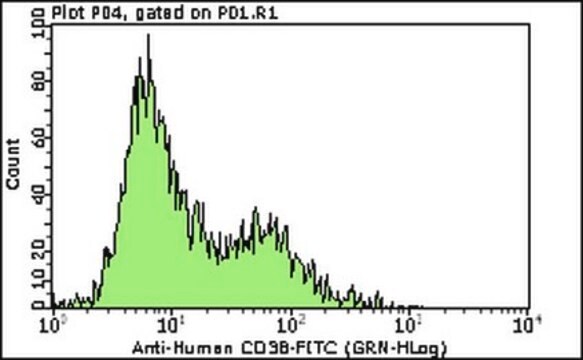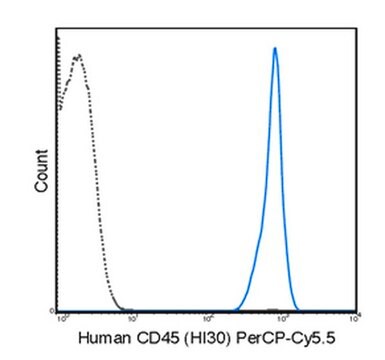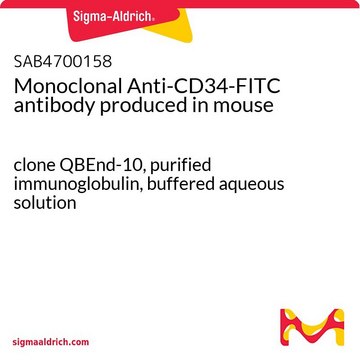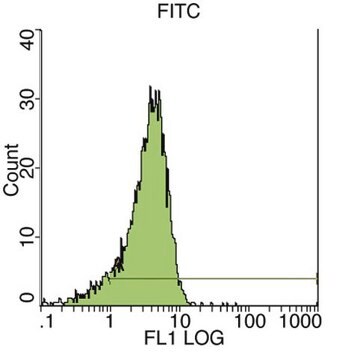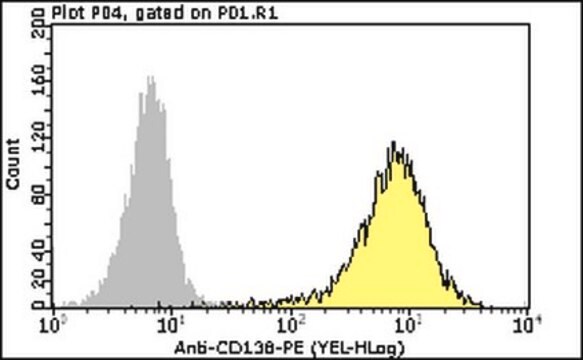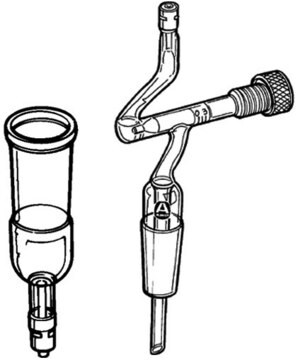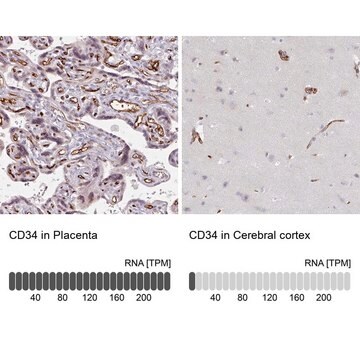CBL496F
Anti-CD34 Class II Antibody, clone QBEND/10, FITC conjugated
clone QBEND/10, Chemicon®, from mouse
About This Item
Productos recomendados
origen biológico
mouse
Nivel de calidad
conjugado
FITC conjugate
forma del anticuerpo
affinity isolated antibody
tipo de anticuerpo
primary antibodies
clon
QBEND/10, monoclonal
reactividad de especies
monkey, human
fabricante / nombre comercial
Chemicon®
técnicas
flow cytometry: suitable
isotipo
IgG1
Nº de acceso NCBI
Nº de acceso UniProt
Condiciones de envío
wet ice
modificación del objetivo postraduccional
unmodified
Información sobre el gen
human ... CD34(947)
Especificidad
FUSION PARTNER: NSO myeloma cell line
Inmunógeno
Aplicación
Studies into the control mechanisms of early haemopoiesis
Purification of haemopoietic cells from, for example, FACS
The antibody reacts with both frozen and fixed tissue sections from vascular endothelium and stromal fibroblasts
Optimal working dilutions must be determined by the end user.
Inflammation & Immunology
Immunoglobulins & Immunology
Forma física
Almacenamiento y estabilidad
Información legal
Cláusula de descargo de responsabilidad
¿No encuentra el producto adecuado?
Pruebe nuestro Herramienta de selección de productos.
Código de clase de almacenamiento
12 - Non Combustible Liquids
Clase de riesgo para el agua (WGK)
WGK 2
Punto de inflamabilidad (°F)
Not applicable
Punto de inflamabilidad (°C)
Not applicable
Certificados de análisis (COA)
Busque Certificados de análisis (COA) introduciendo el número de lote del producto. Los números de lote se encuentran en la etiqueta del producto después de las palabras «Lot» o «Batch»
¿Ya tiene este producto?
Encuentre la documentación para los productos que ha comprado recientemente en la Biblioteca de documentos.
Nuestro equipo de científicos tiene experiencia en todas las áreas de investigación: Ciencias de la vida, Ciencia de los materiales, Síntesis química, Cromatografía, Analítica y muchas otras.
Póngase en contacto con el Servicio técnico
